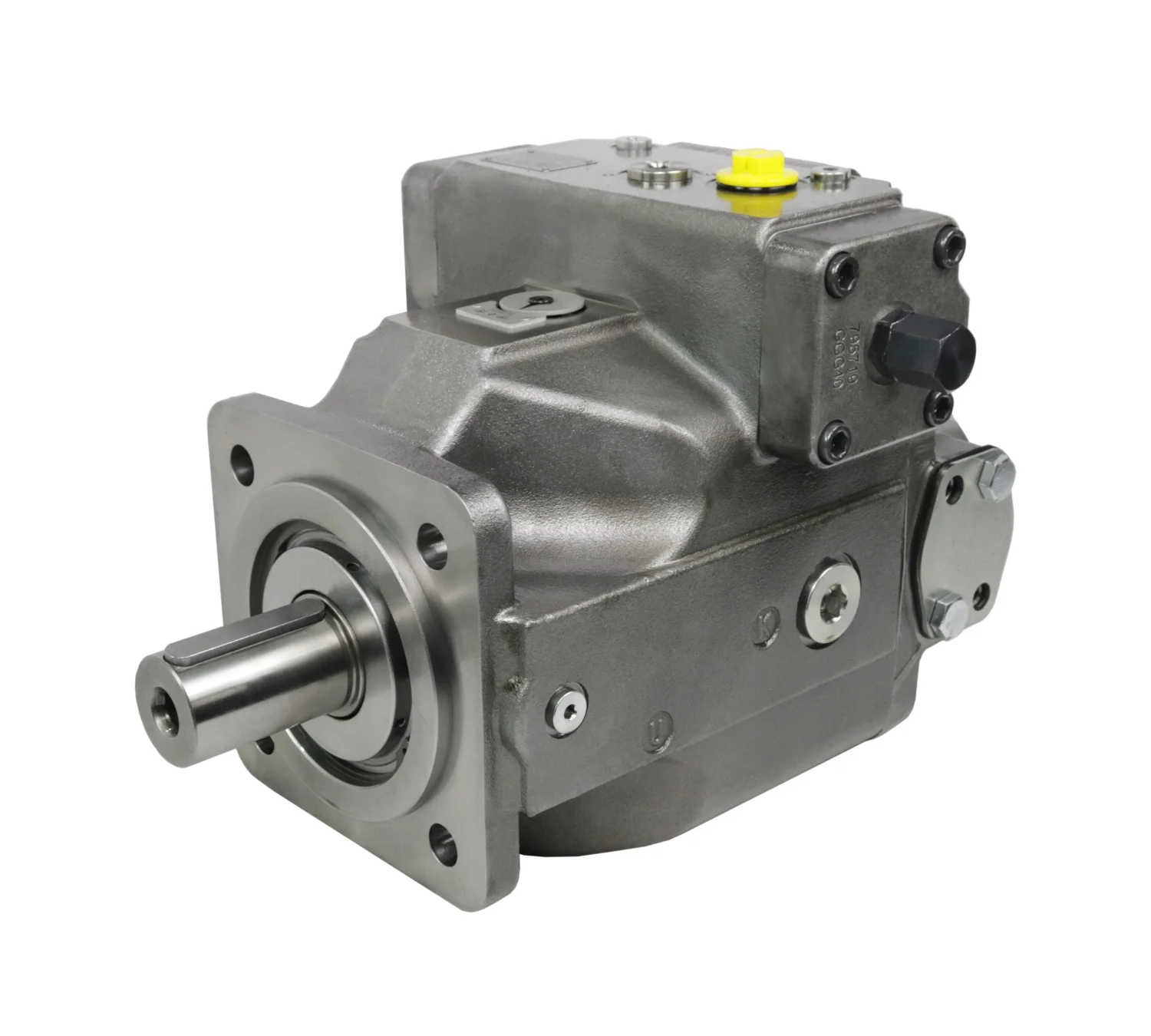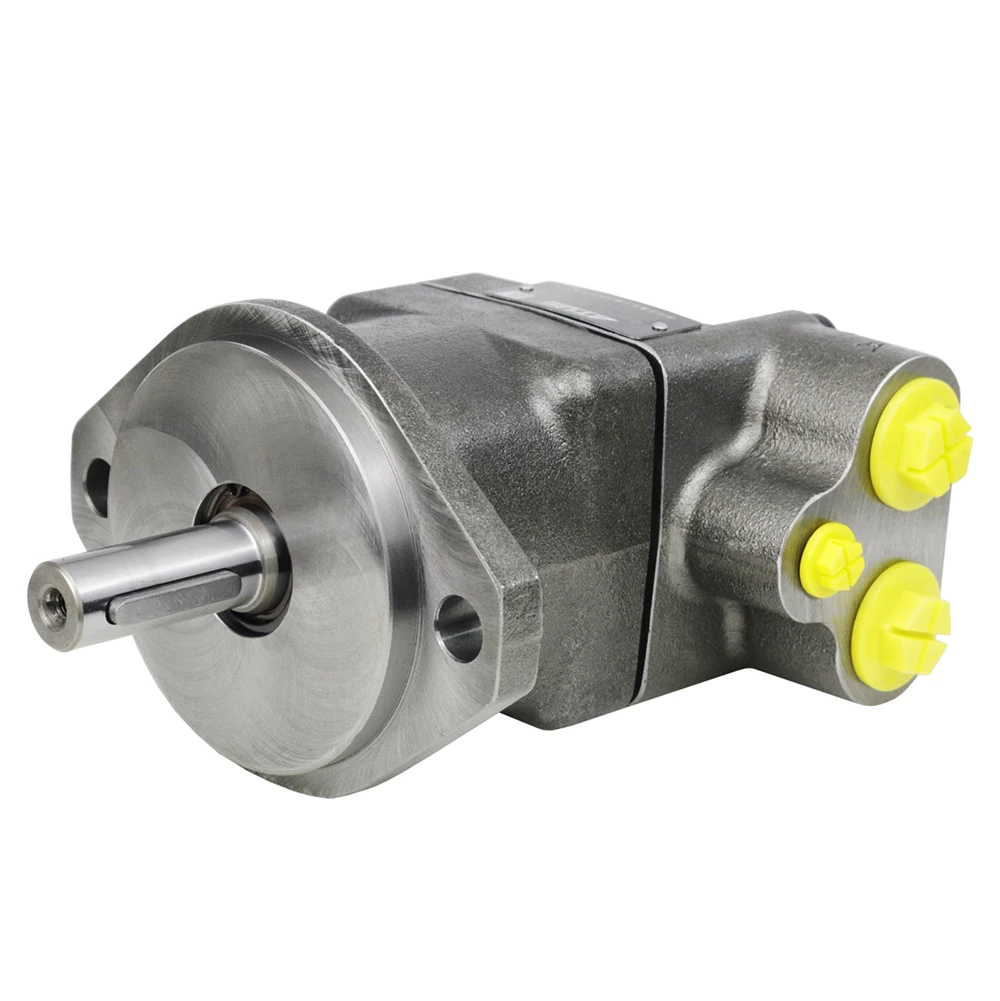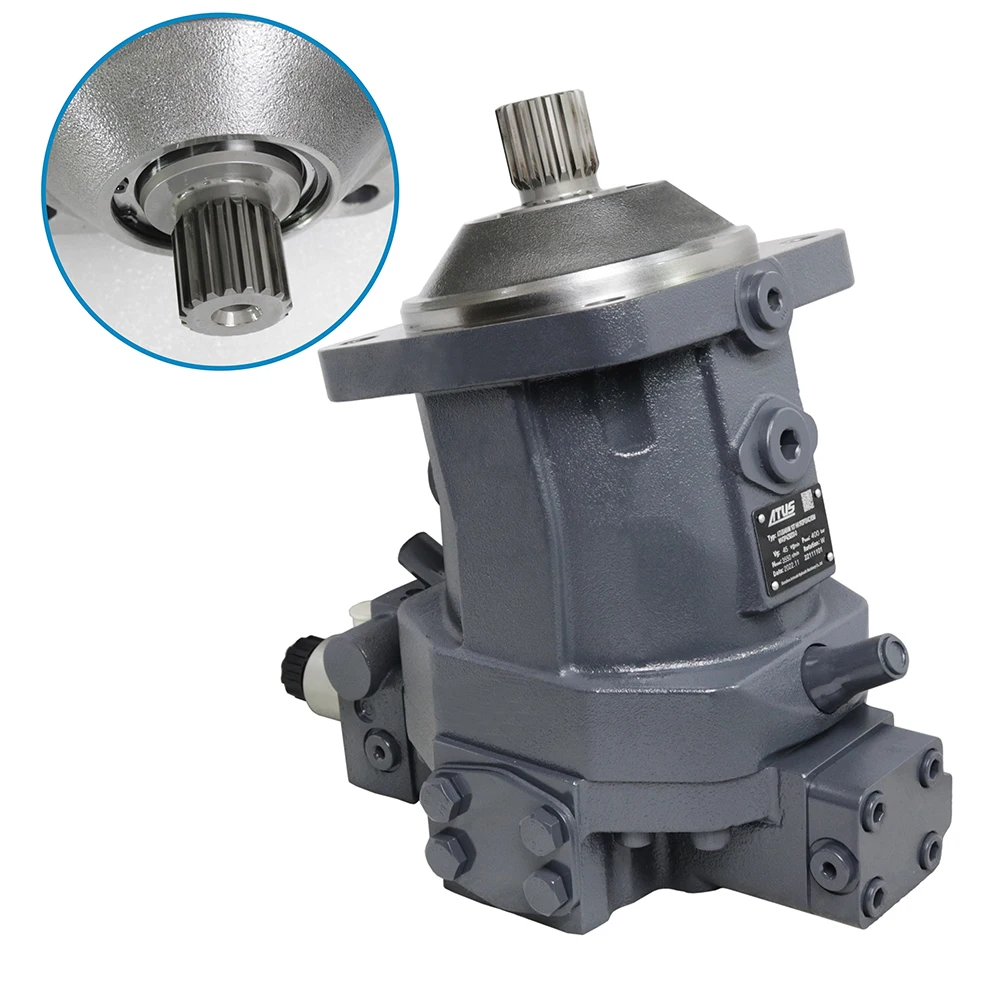In any hydraulic system, valves play a vital role as either mechanical or electromechanical components that control how fluids move through the system. They basically act like traffic cops for liquid, stopping it when needed, sending it down different paths, or letting just the right amount reach certain parts of the machine. When these valves work properly, they keep equipment running smoothly while maintaining safety standards even under extreme conditions. Most industrial systems deal with pressures well above 3000 psi regularly, so reliable valve operation isn't just important it's absolutely essential for preventing costly breakdowns and ensuring worker safety on job sites where heavy machinery is constantly in motion.
Hydraulic valves do much more than just control flow in industrial systems. They actually play a critical role in keeping operations running smoothly while ensuring worker safety across factories and plants. Industry data shows that when hydraulic valves work correctly, they help maintain system stability and stop those dangerous pressure spikes that can cause everything from minor leaks to catastrophic failures. For manufacturers dealing with heavy machinery daily, this means the difference between smooth production runs and costly downtime. Without reliable valve performance, many manufacturing processes simply wouldn't be possible at all.
Hydraulic valves are really important for controlling how fluids move through hydraulic systems. These components make all sorts of machinery work properly by handling when fluid starts moving, stops, or changes speed. Take excavators for example these big machines rely on their hydraulic valves to direct oil flow so different parts can move exactly where needed. Without proper valve control, things just wouldn't operate right. Getting this regulation correct means better performance across the board, something manufacturers care deeply about since it affects both how much work gets done and whether equipment breaks down unexpectedly during operation.
Hydraulic valves play a critical role when it comes to managing pressure throughout various industrial applications. There are several valve types used specifically for pressure control including relief valves that let excess pressure escape and reducing valves that bring down pressure to safe working levels. These components keep things running smoothly by ensuring machines operate within their designed parameters while simultaneously acting as safety devices that stop catastrophic failures before they happen. Industrial facilities across manufacturing, construction and energy sectors rely heavily on proper pressure management because even small deviations can lead to major problems down the line. That's why most modern hydraulic systems simply cannot function properly without these essential pressure regulating components.
Hydraulic valves play a key role in moving fluid around inside any hydraulic system. They basically act as traffic controllers, sending fluid where it needs to go across various components like actuators and cylinders so everything works properly. When these valves do their job right, they make sure the whole system operates with precision, something that matters a lot in fields like robotics and factory automation. The ability to control fluid direction means machines can adapt to different tasks on the fly, helping manufacturers handle all sorts of production requirements without constant reconfiguration.
Hydraulic systems need all sorts of valves if they want to maintain good control and run efficiently. Let's start with directional control valves, which play a big role in directing where the hydraulic fluid goes throughout the whole system. This basically controls how machines move around and operate properly. There are different kinds of these directional valves out there. We have spool valves that work by moving a cylinder shaped part back and forth between different channels. Cartridge valves are another option that takes up less space but still gets the job done reliably when it comes to managing fluid flow. Because these valves can accurately steer the fluid where it needs to go, they become really important parts across many industries. From factory production lines to construction vehicles, proper fluid direction means everything for getting things done right.
Hydraulic Flow Control Valves come next in our discussion, and they're pretty important when it comes to controlling how fast hydraulic actuators move around. These valves basically manage how much hydraulic fluid flows through the system, which means they have a direct impact on how quickly different parts of machinery work, like those big cylinders and motors we see everywhere. There are several common types worth mentioning here. Needle valves let operators make really small tweaks to the flow rate, making them great for jobs where exactness matters a lot. Flow regulators do something different though they keep the flow steady even if there are fluctuations in system pressure. Getting these right is essential because without proper control over flow rates, hydraulic systems just won't perform efficiently or reliably across their intended applications.
Hydraulic pressure control valves play a vital role in keeping hydraulic systems safe from dangerous pressure spikes. These valves keep everything running inside acceptable pressure ranges, which stops equipment failure and keeps operations going smoothly day after day. There are two main kinds worth mentioning: relief valves and pressure reducing valves. When pressure gets too high, relief valves kick in and send extra fluid back to the tank, basically acting as a pressure release mechanism for the whole system. Pressure reducing valves work differently though they bring down pressure levels specifically for parts of the system that need it. Mechanics and engineers know these valves aren't just nice to have but absolutely necessary for any hydraulic setup that needs to last through tough conditions and heavy usage.
Hydraulic valves play a really important role in manufacturing and automation setups, making things much more precise and efficient when it comes to automated work. These valves basically manage pressure levels and fluid flow so machinery runs smoothly without hiccups, which is why they're so common on fast moving production lines and complex robotic systems. Take automotive factories for example where these valves help run those big robotic arms during assembly line work. They make sure parts get put together just right every single time, no matter how many cars roll off the line each day.
When it comes to construction sites and big machinery operations, hydraulic valves play a vital role in keeping excavators, bulldozers, and cranes running strong. Without proper hydraulics, these beasts wouldn't be able to lift tons of dirt or move massive loads around job sites. The valves control how hydraulic fluid moves through the system, which is what actually makes all those powerful movements happen. On tough construction projects where equipment gets pushed to its limits day after day, good quality hydraulic valves make all the difference between a machine that lasts for years versus one that breaks down constantly. That's why most experienced operators know to check valve condition regularly during maintenance checks.
Hydraulic valves play a big role in today's farming operations too, helping run all sorts of equipment from tractors to harvesters and even irrigation setups. Take tractors for instance these days they rely on hydraulics to move those heavy attachments like plows and harrows around the fields, making them work better than ever before. Harvesters need them as well since the complex motions needed to pick crops right depend heavily on good valve control. Farmers have come to expect this kind of flexibility in their gear because it really makes a difference when trying to get maximum output while keeping costs down. Across farms everywhere, proper hydraulic systems mean fewer breakdowns during critical seasons and smoother day to day operations overall.
The proper parts make all the difference when it comes to running hydraulic systems effectively. Hydraulic valves serve as essential control points throughout these systems, managing fluid flow and pressure levels in complex machinery setups. From factory assembly lines to farm equipment and construction vehicles, dependable hydraulic components ensure operations run without interruption. Industries relying on hydraulics consistently report better productivity and fewer breakdowns when they invest in quality valves and other system elements that maintain optimal performance standards.
When looking at high performance hydraulic systems, the Rexroth A4vso500 Piston Pump A4v90 stands out among competitors. These particular models play a key role in maintaining accurate fluid control across different settings, which helps keep machinery running smoothly and efficiently over time. The pump comes with several displacement options available alongside its impressive 350 bar nominal pressure rating. This versatility makes it suitable for a wide array of industrial applications including things like injection molding processes or operating complex hydraulic station setups where reliability matters most.

The Parker F11 series hydraulic piston pumps (models F11-06, F11-10, and F11-12) really shine when it comes to adapting to different situations while maintaining impressive speed during operation. These pumps cover all sorts of requirements thanks to their adjustable displacement options and various pressure ratings, which explains why so many industries rely on them for their day-to-day work. They can reach speeds as high as 12,800 rpm and offer multiple torque configurations too. This means they tackle tough jobs in manufacturing plants, construction sites, and other demanding environments without breaking a sweat.

The A6vm Hydraulic Rexroth Aa6vm107 and Aa6vm160 Motors offer something pretty special for equipment needing adjustable torque and varying speeds. These motors work well across many different factory environments, especially where machinery needs to handle changing loads and conditions without missing a beat. What makes them stand out is their ability to tackle tough hydraulic jobs while maintaining impressive flow rates and delivering substantial torque when needed. Farmers have been putting these motors to good use in irrigation systems that need to adjust water pressure based on soil conditions. Construction companies also find value in them for heavy lifting operations where sudden changes in load requirements are common during projects.

Each of these products exemplifies the engineering excellence possible through meticulously designed hydraulic components, catering to diverse needs across various industrial fields.
Keeping hydraulic valves in good working order through regular maintenance helps avoid expensive failures down the road. A good practice is to set up routine inspections looking for telltale signs like worn parts, leaks around connections, or rust spots developing over time. Don't forget to clean out those valves from time to time too since dirt and other junk can clog things up and mess with proper fluid movement. Make sure all those fittings and seals stay nice and tight so nothing starts leaking where it shouldn't. Most folks find that doing these basic checks once a month works pretty well, though following what the equipment maker suggests makes sense too. This kind of consistent care really extends how long these valves will last before needing replacement.
Hydraulic valves often run into trouble with various issues over time. Common problems tend to be seal failures causing leaks, pressure fluctuations throughout the system, and clogs from dirt or debris getting stuck inside. When something goes wrong, start by looking at all connection points to see if anything has come loose. Check those seals carefully too since they degrade with use. Damaged components should be swapped out promptly. Don't forget about the hydraulic fluid quality either. If it's dirty or not within the right viscosity range specified by manufacturers, that will definitely impact how well the valves work. For stubborn problems that just won't go away despite basic checks, the manufacturer's documentation usually holds valuable clues. Some complex installations might need expert attention anyway. Regular maintenance following these guidelines helps prevent many headaches down the road and keeps hydraulic systems performing reliably without unexpected breakdowns.
Hydraulic valves are essential components across numerous industries, ensuring efficient and reliable fluid control systems.